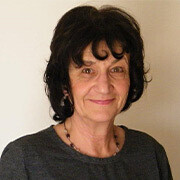Find Out More About Turnabout
We will be very pleased to respond to requests for further information; to advise schools how to implement the programme and to explain the outcomes that can be expected.
The Turnabout Programme is applied through a series of table-top activities that utilise familiar objects used in schools. The activities are fun for the children and easy to administer. The Turnabout Programme improves the child’s capacity for learning, particularly reading. Following Turnabout training traditional methods of teaching literacy skills can then become effective. Turnabout does not conflict with any remedial literacy programme - rather it is the catalyst that enables other programmes to be effective.
Turnabout is for primary, secondary and tertiary learners. It requires three one-to-one thirty minute sessions a week for twelve weeks. The Turnabout Programme is applied through a series of table-top activities that utilise familiar objects used in schools. The activities are fun for the children and easy to administer.
The Turnabout Programme is a successful method of helping pupils with the characteristics of Dyslexia and Attention Deficit Disorders. At least 15% of the pupils in most schools will have one or possibly both of these characteristics.

Following three months of Turnabout training, schools find that their pupils make substantial progress in literacy and numeracy skills and are able to retain what they have learned. Advances of one, two or three years in Reading Age after three months are regularly reported by schools.
Returning to school after COVID 19 lockdown has provided a challenge for education systems throughout the world. How can the pupils who have fallen behind catch up with their learning and reinstate their focus of attention? There is a perception that the process will be prolonged but this does not need to be. The learner’s memory and concentration will not readily spring back to life without appropriate assistance. The Turnabout Programme improves the capacity for learning and through this traditional methods of teaching literacy skills can thus become effective.

“I was an Ofsted inspector for over twenty years, starting at a time when inspectors were in a school for four days. Amongst other topics, I reviewed Special Educational Needs and I had the privilege of seeing many schools. One observation stands out clearly. It was a ‘one to one’ session led by a Teaching Assistant with a Year 6 pupil to develop reading skills. All looked perfect. Relationships were excellent and the pupil was giving 100% effort to address the many varied phonics and letter recognition games being used. But a subsequent review of the records showed that there had been no measurable progress in nearly four years of this intensive, expensive provision. This case and many similar, made me realise that the traditional approach to learning to read was unsuitable for some pupils and in fact can be counter-productive, as the impact of persistent failure on the pupils’ self-esteem could be catastrophic. I realised then that an alternative approach was needed. And, from this, Turnabout was developed.” - Enid Korn (M.A. Ed.)

Dr Carol Goldfus is a research fellow at the University of the Free State, South Africa. She completed her doctorate at the University of Birmingham, England, and has post doctorate research fellowships at two other universities. Carol is a researcher in the field of Educational Neuroscience and lectures internationally.

“We have been using Turnabout for about 3 years now. It is scripted and formulaic, so whoever you deploy to deliver it needs to use very little initiative. The children LOVE it, and the staff delivering it love the progress, teachers love impact they see in the classroom, and I love it because it is an intervention with measurable results. Although developed for dyslexic children, we use Turnabout with anyone who is falling behind at all, in any subject. We use it from Y2 –Y6. We use it for vulnerable children who benefit from the confidence they gain. Children have 3 X 20 minute sessions per week. We are putting 10-15 children through each term, depending on need. The results were fab. We didn’t pre/post-test for the first round, and couldn’t believe what we could see, so we now use the Sandwell maths test and the Salford reading tests to measure impact. We are seeing an average of 14 month’s progress for 3 months intervention. We regularly see pupils make 20+ months progress in three month’s intervention. We have some children who make less than that, but these are usually the older children, and the Salford test stops at 11yrs Reading Age." - Head Teacher, Northumberland Primary School
We will be very pleased to respond to requests for further information; to advise schools how to implement the programme and to explain the outcomes that can be expected.
We will be very pleased to respond to requests for further information; to advise schools how to implement the programme and to explain the outcomes that can be expected.